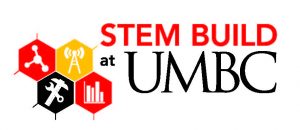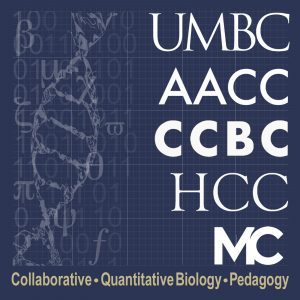
STEM BUILD 2.0 at UMBC is funded by the National Institutes of Health (NIH) and is a study investigating how best to support the success and persistence of students majoring in science, technology, engineering, and mathematics (STEM). A major focus of STEM BUILD 2.0 at UMBC is scalability, as the goal is to institutionalize the interventions that promote student success and persistence. There are three main Cores of STEM BUILD at UMBC: 1) Student Training Core, 2) Research Enrichment Core, and 3) Institutional Core. The Student Training Core employs randomized control trial methodologies with matched pairs. Exemplars of the Student Training Core are participants in the BUILD Training Program, who are provided financial support in addition to holistic academic advising, unique educational and research experiences, residence in the STEM Living and Learning Community, and other programmatic support during their first two years of undergraduate study. The BUILD a Bridge to STEM Internship is the flagship program of the Research Enrichment Core. The BUILD a Bridge to STEM Internship is a six-week group research experience in the summer for students enrolled at local community colleges (Anne Arundel Community College, Community College of Baltimore County, Howard Community College, Montgomery College, and Prince George’s Community College), Gallaudet University, and Morgan State University. Students in the BUILD a Bridge to STEM Internship work in teams of three on authentic research experiences mentored by UMBC faculty or industry partners and the internship is being used as a model to increase the number of students who engage in undergraduate research. Finally, the Institutional Core is exploring mechanisms to increase active learning and pedagogical innovations within STEM education through the development of the Active Learning and Inquiry Teaching (ALIT) certificate, which educates faculty on evidence-based teaching methods.

The NIQB-IUSE project was funded by the National Science Foundation in 2018 and is a collaborative project between UMBC and four community college partners (Anne Arundel Community College, Community College of Baltimore County, Howard Community College, and Montgomery College). This collaboration expands on previous work conducted as part of the STEM Transfer Success Initiative (t-STEM), NEXUS at UMBC, and STEM BUILD at UMBC to establish the following communities:
- Curricular Awareness Teams: Biology and math faculty will comprehensively review curricula to identify areas for action across four courses in the biology core curriculum and identify common areas where quantitative content can be incorporated. The courses that are the focus of this work include: Introduction to Biology 1: Cell and Molecular; Introduction to Biology II: Evolution & Ecology; Genetics; and Cell Biology.
- NEXUS Institute in Quantitative Biology (NIQB) Community: Biology and math faculty will work collaboratively to develop/revise, implement, assess and disseminate competency-based, active learning quantitative biology modules. These modules will be implementing at the participating institutions to explore how this curricular intervention can impact student success in biology.
- Faculty Development Community: Colleagues will promote faculty training on evidence-based teaching approaches and the pedagogical use of modules by offering a common teaching certificate program across the five institutions.